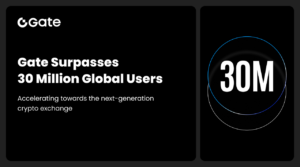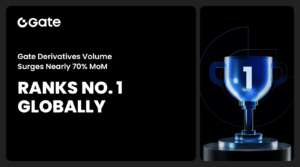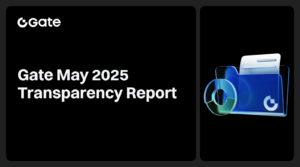NFT Blockchain: The Future of Digital Ownership

In recent years, the world has witnessed a significant shift in how we perceive and interact with digital assets. The emergence of blockchain technology has led to the creation of a new type of digital asset known as non-fungible tokens (NFTs). In this article, we will delve into the world of NFT blockchain and explore how it is transforming the concept of digital ownership.
Understanding Non-Fungible Tokens
Non-fungible tokens (NFTs) are unique digital assets that are created using blockchain technology. Unlike traditional cryptocurrencies such as Bitcoin or Ethereum, NFTs cannot be exchanged for an equal value. Each NFT is unique and has a distinct value based on its rarity, provenance, and demand.
How NFTs Work
NFTs are created using blockchain technology, which allows for the creation of a decentralized ledger that records all transactions in a transparent and immutable manner. The blockchain acts as a public ledger that records the ownership and transaction history of each NFT. This ensures that each NFT is unique, traceable, and cannot be duplicated or counterfeited.
Benefits of NFT Blockchain
The emergence of NFT blockchain has several benefits, including:
- Decentralization: NFT blockchain is decentralized, meaning that it is not controlled by any central authority. This ensures that all transactions are transparent, immutable, and cannot be manipulated by any individual or organization.
- Ownership: NFTs allow individuals to own and control their digital assets in a way that was previously impossible. With NFTs, artists, musicians, and creators can sell their digital content and retain ownership of their work.
- Provenance: NFT blockchain allows for the creation of a transparent and immutable record of the ownership and transaction history of each NFT. This ensures that each NFT is unique, traceable, and cannot be duplicated or counterfeited.
- Value: NFTs are unique digital assets that have a distinct value based on their rarity, provenance, and demand. This allows creators to monetize their digital content and earn a fair value for their work.
NFT Blockchain Use Cases
NFT blockchain has several use cases, including:
- Art and Collectibles: NFT blockchain has revolutionized the art world by allowing artists to create and sell digital art in a way that was previously impossible.
- Gaming: NFT blockchain has also been used in the gaming industry, allowing players to own and trade unique in-game assets.
- Music and Entertainment: NFT blockchain has allowed musicians and entertainers to sell unique digital content and earn a fair value for their work.
Challenges Facing NFT Blockchain
While NFT blockchain has several benefits, it also faces several challenges, including:
- Environmental Impact: NFT blockchain is energy-intensive, which has led to concerns about its environmental impact.
- Regulation: The lack of clear regulations surrounding NFT blockchain has led to concerns about its legality and potential for misuse.
Advantages of NFT Blockchain
Increased Transparency and Security
NFT blockchain provides greater transparency and security when it comes to digital asset ownership. Since each NFT is unique and traceable, it is impossible to duplicate or counterfeit it. This makes it easier for creators to prove ownership of their digital assets and track their transaction history.
Monetization Opportunities
NFT blockchain provides creators with new opportunities to monetize their digital content. They can sell their digital assets directly to buyers, rather than relying on third-party platforms that may charge fees or take a cut of their earnings. This allows creators to earn a fair value for their work and retain ownership of their digital assets.
Increased Accessibility
NFT blockchain has also made digital assets more accessible to a wider range of people. Previously, only those who were familiar with cryptocurrency trading could invest in digital assets. However, with NFT blockchain, anyone can buy and sell unique digital assets, regardless of their level of experience with cryptocurrency trading.
Use Cases of NFT Blockchain
Digital Art
One of the most popular use cases for NFT blockchain is digital art. NFTs allow artists to create and sell unique digital artwork that is traceable and cannot be duplicated. This has opened up new opportunities for artists to monetize their work and reach a wider audience.
Gaming
NFT blockchain has also been used in the gaming industry, allowing players to own and trade unique in-game assets. This has created new opportunities for gamers to monetize their gaming experience and interact with other gamers in a decentralized and transparent manner.
Music and Entertainment
NFT blockchain has allowed musicians and entertainers to sell unique digital content and earn a fair value for their work. This has opened up new revenue streams for musicians and entertainers, who can now sell digital merchandise and other unique assets directly to their fans.
Challenges Facing NFT Blockchain
Environmental Impact
One of the major challenges facing NFT blockchain is its environmental impact. NFT blockchain uses a proof-of-work consensus algorithm, which requires a significant amount of energy to process transactions. This has led to concerns about the environmental impact of NFT blockchain, as the energy consumption required for NFT transactions has been estimated to be as high as that of a small country.
Legal and Regulatory Issues
Another challenge facing NFT blockchain is the lack of clear regulations surrounding its use. This has led to concerns about the legality of NFT transactions and the potential for misuse. In addition, the anonymity of NFT transactions has raised concerns about their potential use in illegal activities such as money laundering and fraud.
Conclusion
NFT blockchain has revolutionized the concept of digital ownership by providing creators with new opportunities to monetize their digital content and retain ownership of their digital assets. With its unique benefits and use cases, NFT blockchain has the potential to transform several industries and change the way we interact with digital content. However, it also faces several challenges that must be addressed to ensure its long-term sustainability and viability.

I have been in the industry for over 5 years. I know all the latest news and what is going on with different coins. I write about Bitcoin, Ethereum, Litecoin, and more.







